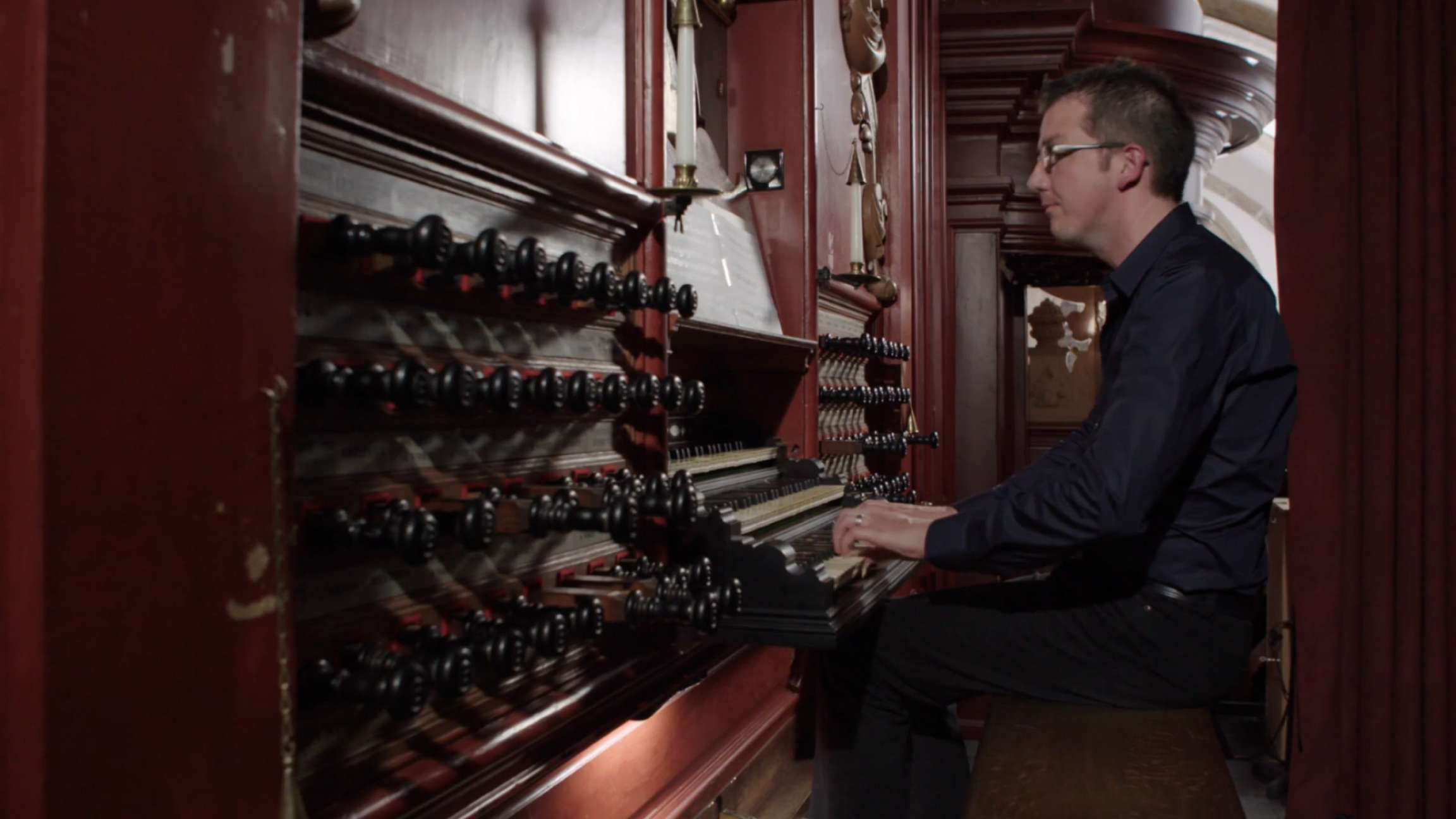

Vom Himmel kam der Engel Schar
BWV 607 performed by Bart Jacobs
St Bavo's Church, Haarlem
Behind the music
Fast angels and slow angels
A Christmas hymn in minor lends a cautious sound to the season
In compiling his Orgelbüchlein, Bach followed the church calendar. Although useful for the organist, you run the risk of monotony – always cheerful at Christmas and always sad in Passion Week. So Bach would occasionally sprinkle a different sound into the ‘Christmas cluster’, for example. This arrangement of Vom Himmel kam der Engel Schar, for instance, is in minor despite its joyful theme, as if to emphasise the seriousness of the mystery of faith.
The words of the hymn concerned, written by Luther, tell of the annunciation to the shepherds of Jesus in the manger. The hymn assures us that whoever believes in the true God is safe from sin and death. Bach expresses the angels descending from heaven with quick runs in the alto and tenor parts, and slow runs in the bass. Incidentally, Bach’s manuscript (shown in the interview with Bart Jacobs) reveals another surprise: the ever-broadening coloraturas that characterise the work appear to be a later addition. Just look at how all those notes are squeezed into the bar!
Orgelbüchlein, BWV 599-644
During his time as court organist at Weimar (1708-1714), Bach already started compiling his first collection of chorale arrangements and chorale preludes (compositions based on Lutheran hymns). They were intended to be used in church services, and the preludes were an introduction to congregational singing. According to the list of contents in Bach’s manuscript, it was supposed to have been a collection of 164 compositions, but in the end it did not exceed 46 (BWV 599-644). The order, combined with the limited length of the pieces, indicates that Bach was planning to compile a complete cycle of chorale arrangements. Later, in his period at Köthen, he gave the collection a title page, which reads: ‘Orgel-Büchlein, Worinne einem anfahenden Organisten Anleitung gegeben wird, auff allerhand Arth einen Choral durchzuführen…’ (‘Little organ book, in which a beginner organist is taught to arrange a chorale in all sorts of ways...’). So at the time, he intended the collection just as a teaching manual, maybe to present on his application in 1722 for the post of cantor at the Thomasschule in Leipzig, which was an important teaching position. The pupils must have had a hard time of it, as the preludes contain the complete range of baroque keyboard techniques in a nutshell.
Organ
This recording was made on the famous Müller organ in the Great or St. Bavo Church, in Haarlem. It is a very special instrument from 1738. Both Georg Friedrich Händel and Wolfgang Amadeus Mozart travelled to Haarlem to play this organ! Händel was particularly delighted by the unusual Vox Humana register. The organ has over 5000 pipes, divided over 64 registers, with three manuals and a pedal.
- BWV
- 607
- Title
- Vom Himmel kam der Engel Schar
- Instrument
- organ
- Genre
- organ works
- Serie
- Orgelbüchlein
- Year
- ca. 1708-1717
- City
- Weimar
Extra videos
Vocal texts
Original
Translation
Credits
-
- Release date
- 29 September 2017
-
- Recording date
- 22 September 2016
-
- Location
- St Bavo's Church, Haarlem
-
- Organist
- Bart Jacobs
-
- Organ
- Christian Müller, 1738
-
- Director
- Bas Wielenga
-
- Music recording
- Guido Tichelman, Bastiaan Kuijt
-
- Music edit and mix
- Guido Tichelman
-
- Camera
- Bas Wielenga, Jeroen Simons
-
- Lights
- Gregoor van de Kamp
-
- Interview
- Onno van Ameijde, Marloes Biermans
-
- Producer
- Jessie Verbrugh
Discover
Help us to complete All of Bach
There are still many recordings to be made before the whole of Bach’s oeuvre is online. And we can’t complete the task without the financial support of our patrons. Please help us to complete the musical heritage of Bach, by supporting us with a donation!

